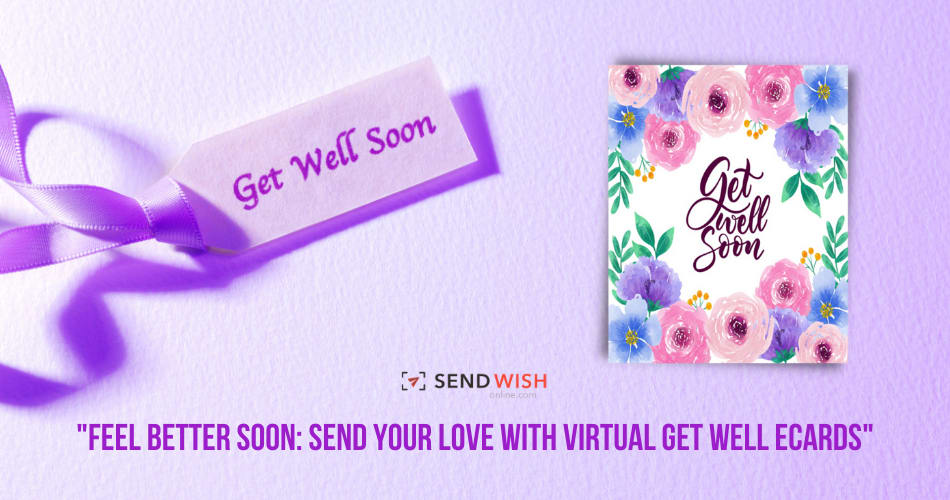Cultural Perspectives on Get Well Soon Cards: A Global Tradition
Get well soon card
Introduction: Get well soon cards are not only a universal gesture of care and support but also a reflection of cultural values and traditions. Across the globe, different cultures have their own unique perspectives on sending well wishes to those who are unwell. In this article, we will explore the cultural perspectives on Get well soon card, highlighting the diverse traditions and customs that shape this global tradition. Western Cultures: In Western cultures, get well soon cards are a common way to express sympathy and support. These cards often feature uplifting messages, cheerful designs, and vibrant colors. In countries like the United States, the United Kingdom, and Canada, sending get well soon cards is seen as a genuine and thoughtful gesture, demonstrating the sender's empathy and concern for the recipient's well-being. Eastern Cultures: In many Eastern cultures, such as China, Japan, and South Korea, the act of sending well wishes to the ill is deeply rooted in traditional beliefs and customs. In Chinese culture, for example, get well soon cards may contain symbolic images or characters associated with good health and longevity. Red and gold colors are often used, as they symbolize good luck and auspiciousness. Similarly, in Japan, the gesture of sending get well soon cards, known as "Ogenki Desu Ka" cards, is considered a way to express care and to encourage the recipient's recovery. Middle Eastern and Islamic Cultures: In Middle Eastern and Islamic cultures, sending get well soon cards is an expression of support and compassion. Islamic cultures emphasize the importance of offering prayers and supplications for the sick, and get well soon cards often incorporate religious verses or prayers for healing. The messages on these cards may focus on seeking divine intervention and expressing hope for the recipient's recovery. Latin American Cultures: In countries like Mexico, Brazil, and Argentina, get well soon cards are often accompanied by other gestures of support and solidarity. It is common for family and friends to visit the sick person, bringing flowers, gifts, or small tokens of good luck. Get well soon cards in Latin American cultures may include heartfelt messages, poems, or religious references to convey both empathy and faith in the recipient's recovery. Visit to:- wedding greeting cards African Cultures: Across the diverse cultures of Africa, get well soon cards may take different forms based on local traditions and customs. In some regions, oral traditions prevail, and well wishes are conveyed through spoken words or songs rather than written cards. However, with the influence of Western culture, the practice of sending get well soon cards has also become more prevalent in urban areas, particularly in countries like Nigeria, Kenya, and South Africa. Indigenous Cultures: Indigenous cultures around the world have their own unique traditions when it comes to expressing care for the sick. In Native American cultures, for instance, healing ceremonies, rituals, and prayers are integral to the process of supporting those who are unwell. While the use of get well soon cards may not be as prominent in indigenous communities, the underlying intention of sending healing thoughts and positive energy remains a central aspect of their cultural practices. Indigenous cultures, including Native American, Maori, and Inuit cultures, have their own unique perspectives on well-wishing practices. These cultures often emphasize the connection between nature, spirituality, and healing. In Native American traditions, for instance, get well soon sentiments may be expressed through the gifting of sacred herbs, such as sage or sweetgrass, which are believed to possess purifying and healing properties. In Maori culture, well wishes are often accompanied by traditional songs or chants that invoke healing energies and ancestral blessings. Asian Cultures: In addition to the previously mentioned Eastern cultures, various other Asian cultures have their own traditions surrounding get well soon cards. In India, for example, well wishes are often conveyed through "Get Well Soon" messages written on colorful handmade cards or through the exchange of flower garlands. In Thailand, sending a get well soon card is seen as an act of kindness and is often accompanied by the offering of traditional herbal remedies or fruits believed to have healing properties. European Cultures: European cultures have a long-standing tradition of sending get well soon cards. In countries like France, Germany, and Italy, these cards are often adorned with delicate illustrations or photographs of serene landscapes. The messages conveyed in European get well soon cards tend to be heartfelt and sincere, focusing on the recipient's well-being and recovery. In some European countries, such as Spain, it is common for family and friends to visit the sick person in the hospital, bringing flowers or small gifts along with the get well soon card. Visit to:- Thank you cards Conclusion: Get well soon cards are a global tradition that transcends borders and cultural boundaries. The act of sending well wishes to the ill is a universal expression of empathy, care, and support. Whether through vibrant designs, religious symbols, or personalized messages, get well soon cards reflect the unique cultural perspectives and traditions of different societies. By understanding and appreciating these cultural nuances, we can engage in this tradition with respect, sensitivity, and an appreciation for the rich diversity of human expression and connection.
06 Feb 2024 - Present




